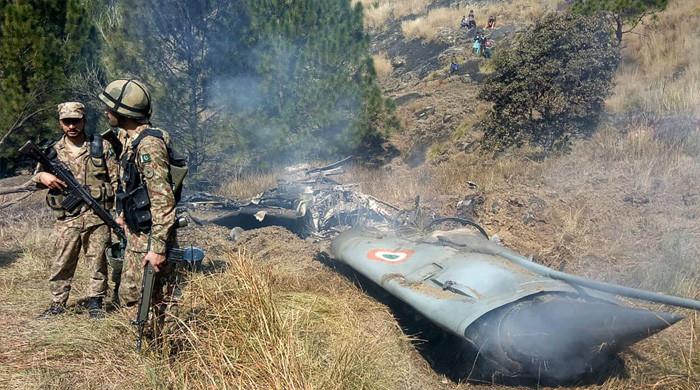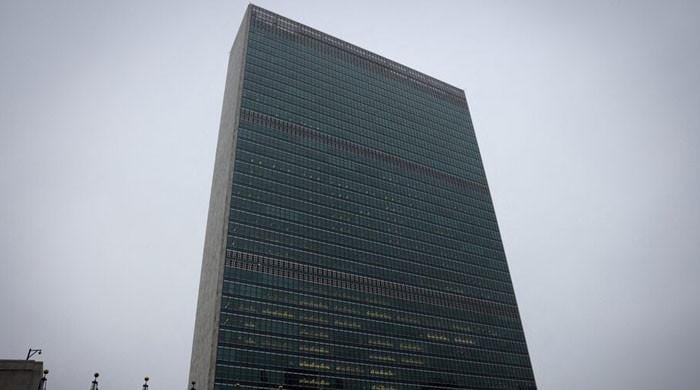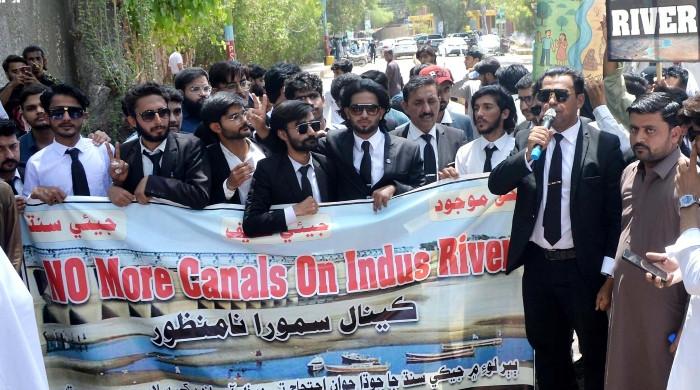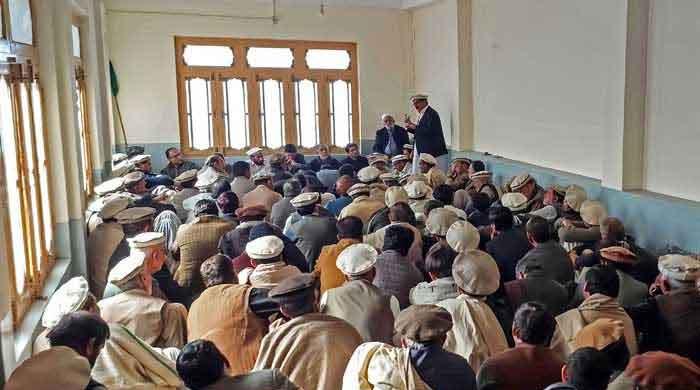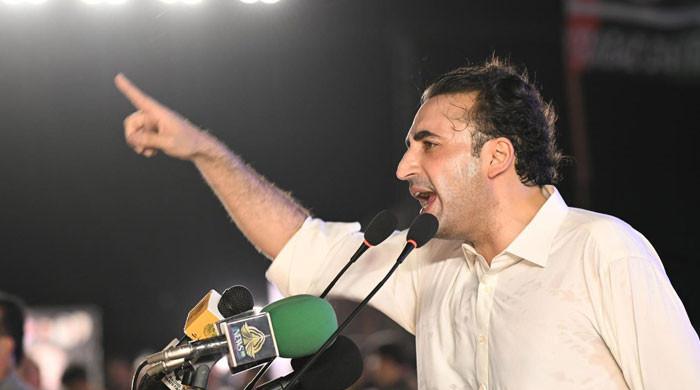KTH coronavirus deaths: Inquiry holds current, former directors of Peshawar hospital responsible
Charge sheets issued to managers and staff of Peshawar's Khyber Teaching Hospital, report says
December 22, 2020
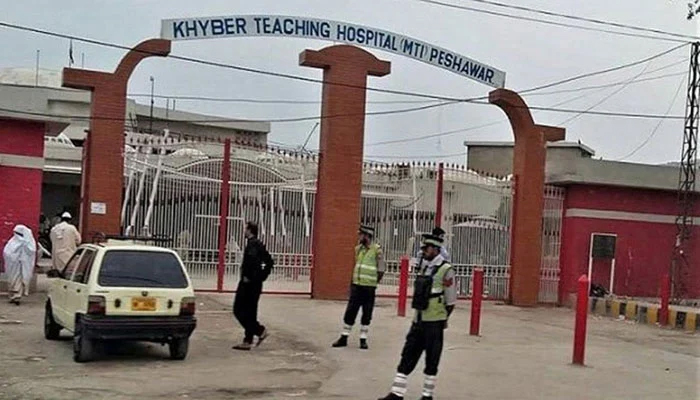
- Chairperson of the Board of Governors, as well as all five members, submit resignations on ethical grounds
- Such "standard of transparency is important", says KP Health Minister Taimur Khan Jhagra
- Report submitted to Khyber Pakhtunkhwa Chief Minister Mahmood Khan
- Probe committee recommends action against those involved
PESHAWAR: The current director of the Khyber Teaching Hospital (KTH), as well as his predecessor, have been held responsible for the failure of proper oxygen supply in the hospital, in an inquiry report released on Tuesday by Khyber Pakhtunkhwa Finance and Health Minister Taimur Khan Jhagra.
"As promised, the KTH inquiry [was] completed by the MTI board, and as promised, GoKP is making it public immediately," Jhagra said on Twitter, referring to the Medical Teaching Institution (MTI) board that conducted a probe into the tragic deaths of six cornavirus patients due to lack of oxygen supply.
"This standard of transparency is important if we are to continue the journey of continuous improvement of our health system, a core commitment of our govt," he added.
In an unfortunate incident of oxygen supply failure in the night between December 5 and 6, 2020, six people — six in the coronavirus ward and one in the intensive care unit (ICU) — died.
"Interrupted oxygen supply on that night may have been a contributing factor" to the death of "a two year old child suffering from leukaemia and multiple complications".
'Would have saved many lives'
A preliminary fact-finding report was furnished the day after the deaths and the hospital's Board of Governors was tasked with a detailed investigation of the case.
"The unfortunate incident took place during midnight between 05.12.2020 and 06.12.2020 when the Oxygen supply front VIE tank was completely exhausted, the initial alarm came from the COVID isolation ward and the Operation Theatre (OT) at 12 midnight.
"At the time of incident, ninety (90) patients were under treatment in the isolation ward. Due to the inefficient mechanism of monitoring oxygen levels (dependent entirely on oxygen plant operator physically monitoring the alarm system of oxygen tank room) alarms in the ward were raised by the available staff only when oxygen levels depleted to near zero level.
"Had the alarm system been properly installed (e.g. extension of interface to wards) or adequately monitored (through an efficient system) then the initial alarms could have been raised when the level of oxygen dropped to 300 litres in the oxygen tank (trigger level of central alarm system in oxygen tank room). This would have saved many lives," the report noted.
Board chair, members submit resignations
The Board of Governors have issued charge sheets to the managers and subordinate staff who were related to the incident and formed a three-member inquiry committee to fix responsibility and recommend necessary action.
"The BOG itself conducted the enquiry for fixation of responsibility against officials above managerial level [hospital directors in this case] under the relevant rules," it added.
The Board of Governors, the report noted, also carried out its own inquiry into the officials above managerial level.
In addition, the BOG chairperson and all five Board members have submitted their resignations on "high moral grounds, dignity & integrity", while the report has been sent to Khyber Pakhtunkhwa Chief Minister Mahmood Khan.
Failures leading to 'crisis at hand'
The report added that the staff responsible for the oxygen supply were negligent of their duties as were the current and former directors in ensuring system's improvement.
In its recommendations, the committee directed for action against those involved, including the biomedical engineer, human resources manager, and oxygen plant assistants and staff.
The team — under Director-General Health Services (DGHS) Dr Tahir Nadeem and comprising Human Resources Manager Yousaf Jamal, Facilities Manager Tahir Shahzad, Supply Chain Manager Ali Waqas, Biomedical Engineer Bilal Khan, and Oxygen Plant Assistant Niamat Ali, as well as two support staff, Oxygen Gas Attendant Shahzad Akbar and AC Plant Helper Abdul Wahid — "failed to establish a well-functioning oxygen supply management regime, or to improve the facilities available, in the context of the crisis at hand".
Multiple shortcomings, incidents of negligence
The report underscored that a vacuum insulated evaporator (VIE) oxygen supply contract — awarded to the Pakistan Oxygen Limited (POL) — expired on June 30, 2017, but was extended until June 30, 2020, by then-hospital director Dr Muhammad Zafar Afridi.
Former directors, including Dr Nek Dad, Dr lrshad Ahmad, Dr Inayat Ur Rahman, and Dr Afridi, "failed to advertise/extend the supply contract of VIE oxygen during their respective tenures", as did Dr Tahir Nadeem, it said.
Regardless, the POL continued supplying oxygen regularly after June 2020 despite the contract having expired earlier.
A back-up oxygen manifold system was decommissioned in 2017 for the construction of another project but was none of the hospital directors, including Dr Dad, Dr Afridi, and Dr Nadeem, "bothered to re-commission the backup system", with the "negligence becom(ing) even more damaging in the presence of COVID-19 pandemic", the report said.
More than one of Dr Nadeem's claims were found to be false and his neglected duties as well, the report added.
Findings
- Hospital never demanded for more oxygen than that supplied by the POL despite having additional capacity in the VIE tank.
- Required accessories, oxygen flow metre, and pressure gauge were found to be grossly deficient on the night of the incident despite presence of 260 portable oxygen cylinders.
- The staff deputed at oxygen plant of the KTH did not possess pressure measuring gauge.
- The oxygen plant assistant/operator was looking after the maintenance of oxygen supply as a "responsibility handed over to him informally by the previous hospital directors" but the individual "lacked the requisite qualifications and skills for such an assignment".
- Most of the officials responsible for some stage of the supply chain management of oxygen to the wards continuously failed to perform their duties and never brought the matter to the notice of BOG.
- Dr Nadeem and his predecessors failed in their primary responsibility of managing the affairs of oxygen supply of KTH in an efficient and effective manner.
- Dr Nadeem failed to timely intimate the incident report to the relevant quarters, that is, the Board of Governors, Secretary Health, and the Health Minister; he also arrived at the scene after 2am and told the Board he did not inform anyone since it was an administrative matter.
The committee noted that "ideally the oxygen plant should have been operated through a Biomedical Engineer/Technician".
"The fact that low skilled operators were used for operations and maintenance of the oxygen plant indicates a complete failure of Dr Tahir Nadeem and his predecessors to realize the importance of oxygen supply and additionally indicates the failure of Dr Tahir Nadeem to put in place a technically proficient mechanism for oxygen supply management of KTH," it added.
The Board underlined that Dr Nadeem would be immediately terminated and repatriated to the parent department, whereas Dr Zafar Afridi and Dr Dad will be served with charge sheets. The medical director, on the other hand, would be warned to strengthen the early warning system in clinical wards / intensive care.




